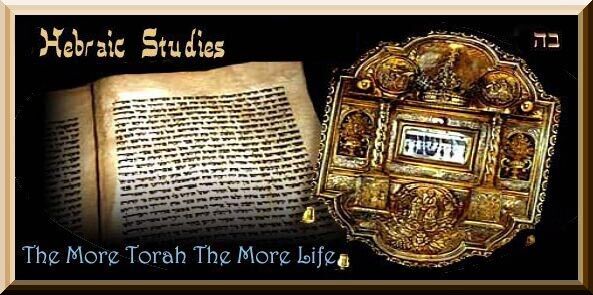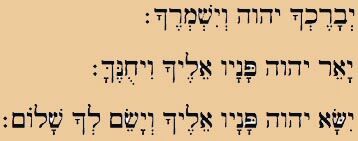Hebraic Studies - Parashat Pinchas – Study N° 2.
Please Note: Firefox and some other search engines are not suitable
Use Google Chrome for this page to load
perfectly!

Please do NOT visit this site on Shabbat or on a
![]() - Y-H-V-H, which we
usually pronounce as “Adonai” or “HaShem”.
At all times treat the most blessed Name with great sanctity and when we even
see the Name, we should say “blessed be His Sanctified Name.”
- Y-H-V-H, which we
usually pronounce as “Adonai” or “HaShem”.
At all times treat the most blessed Name with great sanctity and when we even
see the Name, we should say “blessed be His Sanctified Name.”
*“This is My Name forever,
and this is My memorial to all generations.”
Shemot - Exodus 3:15.
Please Note: I will be using the “Jewish Publication Society” (JPS version of the Torah/Tanakh) with some minor updates.
For who may not use a Hebrew/English Torah/Tanakh and have a Bible the verse may occasionally differ by one up or down
Parashat Pinchas Study N°2
Be’midbar - Numbers 25-10 to 30:1.
With
Yahushua - Joshua’s selection as leader comes in
a passage from this week’s parashah that is used to
this day in many rabbinic and cantorial ordination
ceremonies:
“And Moshe spoke unto ![]() , saying: ‘Let
, saying: ‘Let ![]() , the Elohim of the spirits of all
flesh, set a man over the congregation, who may go out
before them, and who may come in before them, and who may lead them out, and
who may bring them in; that the congregation of
, the Elohim of the spirits of all
flesh, set a man over the congregation, who may go out
before them, and who may come in before them, and who may lead them out, and
who may bring them in; that the congregation of ![]() be not as sheep which have no shepherd” Be’midbar - Numbers 27:15-17 (JPS
version of he Torah).
be not as sheep which have no shepherd” Be’midbar - Numbers 27:15-17 (JPS
version of he Torah).
At Elohim’s
instruction, Moshe proceeds to lay his hands on Yahushua’s - Joshua’s head, authorizing him to be the
next leader.
Yahushua - Joshua is a familiar
figure; we have seen him as Moshe’ second-in-command throughout the
wilderness story. However, he was not the only contender.
At the very beginning of
this parashah,
as well at the end of the last one, we read the story of Phinchas. Phinchas the priest was a zealot, who killed an Israelite man and Midianite woman who he caught in a certain unsavoury situation with a
woman he was obviously not married to. The Talmud in particular shows deep ambivalence about Phinchas’ vigilante justice, but then the Talmud is not factual truth, as
it is NOT from Elohim, but 100% from men! The fact is
that the Torah, which IS THE WORD Of ![]() Elohim, blessed be His Sanctified Name, he seems to be rewarded: his action
stops a plague, and Elohim gives him a covenant of
peace
Elohim, blessed be His Sanctified Name, he seems to be rewarded: his action
stops a plague, and Elohim gives him a covenant of
peace
“And ![]() spoke unto Moshe, saying:‘ Phinchas, the son of Eleazar, the
son of Acharon - Aaron the priest, hath turned My wrath away from the children
of Israel, in that he was very jealous for My sake among them, so that I
consumed not the Children of Israel in My jealousy. Wherefore say: Behold,
I give unto him My covenant of peace; and it shall be unto him, and
to his seed after him, the covenant of an everlasting priesthood; because he
was jealous for his Elohim, and made atonement for the children of
Israel’” Be’midbar - Numbers. 25:10-13 (JPS).
spoke unto Moshe, saying:‘ Phinchas, the son of Eleazar, the
son of Acharon - Aaron the priest, hath turned My wrath away from the children
of Israel, in that he was very jealous for My sake among them, so that I
consumed not the Children of Israel in My jealousy. Wherefore say: Behold,
I give unto him My covenant of peace; and it shall be unto him, and
to his seed after him, the covenant of an everlasting priesthood; because he
was jealous for his Elohim, and made atonement for the children of
Israel’” Be’midbar - Numbers. 25:10-13 (JPS).
Moshe calls upon Elohim to choose a successor for him who will understand
and respect the differences between people, rather than a zealot like Phinchas whose instinct is to find the sinners and kill them, to separate
between “us” and “them.”
Who else might have been
the next leader? One tradition suggests that Moshe looks to his own children. Following the famous episode in which Zelophehad’s
five daughters step forward to claim their father’s inheritance (Be’midbar - Numbers 27:1-11). The
leadership of the people will not to be hereditary; Moshe will not be the first
in a family dynasty. Moshe’s legacy is to be based on merit, not blood
and so Yahushua - Joshua, his disciple,
will become the leader of B’Nei Yisroel.
But there is still
something to be learned about leadership from the episode of the daughters of Zelophehad. They show tremendous courage, as women in a
patriarchal society, to challenge the law and stake their claim, and it is a
tribute to the Torah that they prevail. But there is more. Unlike almost all
the siblings in Genesis, Cain and Abel, Isaac and Ishmael, Jacob and Esau,
Rachel and Leah, Joseph and his brothers — there is no rivalry between
these sisters. They manage to come together, for the good of their family and
each other for they had all learned well and were all of good faith!
Pinchas modeled passionate leadership, but Moshe saw
the risks: someone so passionate could be possibly be blinded to the needs of
his flock, and to the differences that make them whole. In contrast, Elohim originally chose Moshe as leader because he searched
for a lamb that went astray, and had compassion on its need for water. Phinchas would bring a politics of division with his passion, and so although he
is rewarded in his relationship with Elohim, he would
not be the leader of the people. The daughters of Zelophehad,
who are brought together by their love of family and their love of the Land; Yahushua - Joshua, who patiently sat at Moshe’s feet
and learned from watching him lead; these are the models to which we turn.
This parashat ends with the holiday calendar: which holidays
are to be observed when, and what sacrifices are to be offered. In a very
tangible way, this brings the conversation home. Think of what happens when we
sit at the table together. It may be the Passover Seder; be it with our own
families, or our chosen families, or some combination of the two. Almost
certainly there will be differences of opinion, how could there not be, since
we are all made in the image of Elohim? Our challenge
is to show the generosity of spirit that Moshe shows, when he lays his hands
upon Yahushua - Joshua. Elohim commands him to lay one hand on him, but Moshe uses
both, “filling him generously with his own wisdom” “And he laid his hands upon him” (Be’midbar - Numbers 27:23) “filling him generously with his own wisdom”.
Inspired by Elohim, we look with generous eyes to see
the uniqueness of every human being, and our ability to unite.
Standing before Elohim and standing up as a leader calls us to take
risks. Parashat Pinchas provides
us with the story of the daughters of Zelophehad, who
also “stood” up and showed tremendous courage. These daughters not
only demand their inheritance, but also, when Moshe turns the judgement over to Elohim, they
become the first Israelites about whom Elohim affirms;
“The daughters of Zelophehad
speak right: thou shalt surely give them a possession of an inheritance among
their father's brethren; and thou shalt cause the inheritance of their father
to pass unto them”
Be’midbar - Numbers 27:7 (JPS).
As we stand up before Elohim may we know for whom and for what we stand, as we have learned from the lessons given by our risk-taking, justice-seeking ancestors?
Remember we all need some time with those who have things in common with us, and thus it is good to spend some time in Shul (the Synagogue), etc. We all need to fill our lives and delight in our wonderful Jewish community, and many rediscover the peace that allowed for their faith to return and they continued to uphold prayers and the lighting of the Shabbat Candles, and enjoy the Kiddush with the Mishpacha (family). Shabbat Shalom!

May …
“![]() bless thee,
and keep thee;
bless thee,
and keep thee;
![]() make His face to shine upon thee, and be
gracious unto thee;
make His face to shine upon thee, and be
gracious unto thee;
![]() lift up His countenance upon thee, and give thee peace”
lift up His countenance upon thee, and give thee peace”
Be’midbar
– Numbers 6: 24-26 (JPS
version of the Torah).

![]() Elohim, blessed be His
Sanctified Name, is the one who gave us our Life!”
Elohim, blessed be His
Sanctified Name, is the one who gave us our Life!”
Rabbi
![]()
Return to our MAIN PAGE or go to our Main Index


